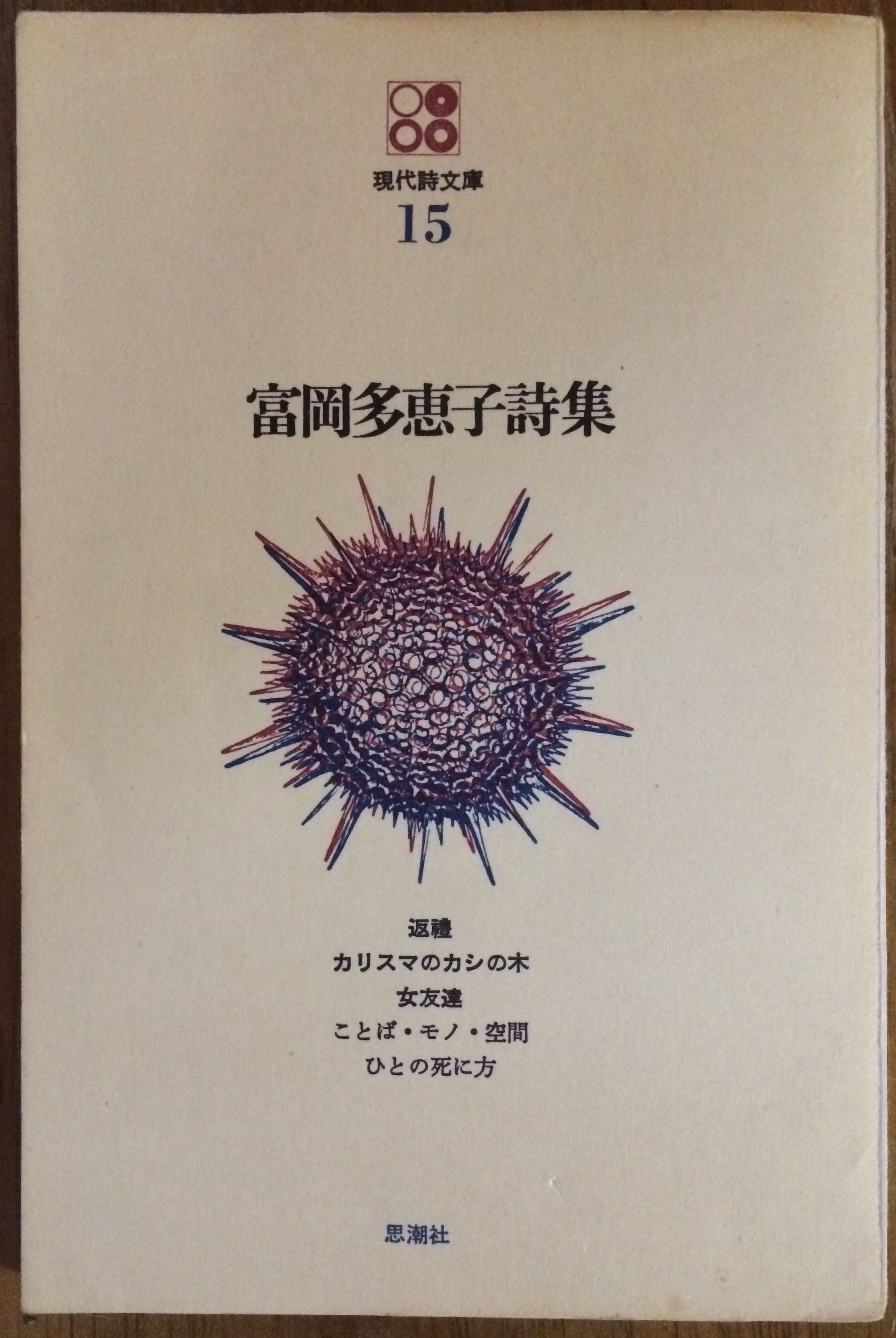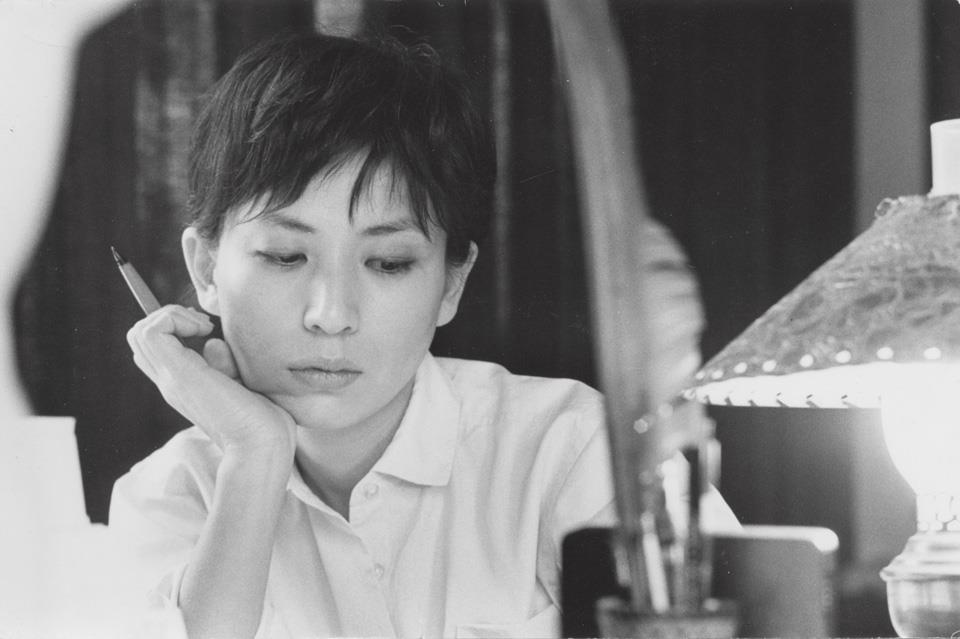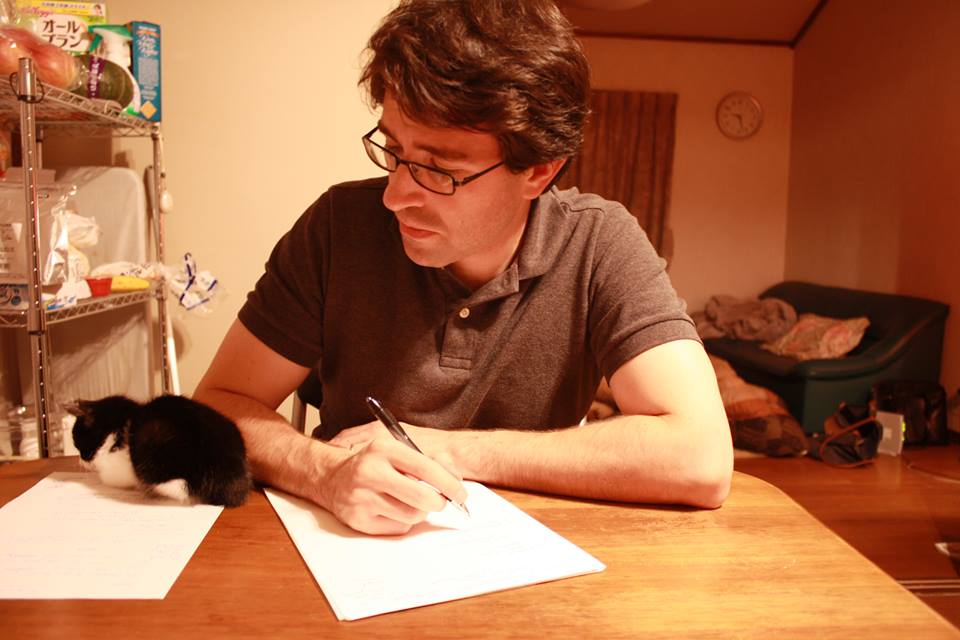Three Japanese Poems
April Grammar
That night
We promised
Each other apart
Like artichoke hearts
Then quickly
Cleared the table
And into chairs we
Fell
You
Bundled up the afternoon
And went to climb Mount Sinai
From the bottom of the dark
Stairwell
Up to your room
Hemmed in by dark
Windows
Into the utterly
Laughable futon you
Then fell
The side dish of soaked natane
And grated radish we ate
On your birthday
At dusk
Were the
Botanical adverbs
Of our relationship
We drank sake
In solemn sips
To what we had
The camaraderie of inanimate objects
And the emptiness of
Travel
Piccolo mondo antico
I watched as
People dressed for battle
Walked the wide flat road
Of the Kōshū Kaidō
In my mind
As I woke to
Love in a different era
With nobody around
Just parents
Sitting cross-legged
Grilling rice cakes
With long metal chopsticks
And afterwards
A deaf man forgetting
How to comfort his wife
His wife who was pregnant
I still had plenty of time
To die piece by piece
By checkout time
(Tomioka [1967] 1968: 96-98)
Again Tonight
Everyone has gone home
The winter gathering is over
In no uncertain terms
You lock the door
In no uncertain terms
You wash your hands
The day after tomorrow
All children born
Of woman will die
You break
Everything around you
Starting with
The dishes
(Tomioka [1967] 1968: 95)
Bread
Don’t misunderstand me
If I talk of roses
Instead of bread
I don’t take bread for granted
I simply cannot help myself
It is my disorder: compelled to eat roses
It is because roses are more real
To me than bread
I will eat bread
To keep from starving
I will eat roses
The day before that happens
I can hold out longer than anyone
Don’t blame me for having bread
Blame me for eating roses
(Yoshihara [1964] 1973: 67-68)
四月の文法 [April Grammar]
その夜
われわれは約束した
朝鮮アザミのように
バラバラに
それからいそいで
皿をかたづけ
椅子のなかに
おちた
きみは
ひるまの感覚をたたんで
シナイの山をのぼるのだと
くらい
きざはしをのぼった
くらい
窓にとりかこまれた
部屋の
ちゃんちゃらおかしい
フトンのなかに
それからおちた
うまれた日にたべた
夕ぐれの
菜種のオシタシと
だいこんおろし
は
きみの関係の
植物的な副詞である
もう云うことのない
物質の友情と
ハカナイ
旅行のための
儀式に
酒をすすった
ピッコロ モンド アンティコ
起きぬけのアタマで
眺める
平面の
甲州街道を
いくさの装束をした
ひとびとがいく
だれもいない
時代の恋愛
ひとの親だけが
あぐらをかいて
カキモチを
かね火箸でやいている
それから
ツンボのおとこが
おんなをあやす術をわすれて
おんなは孕んだ
あたしが帰るまでには
バラバラに死ぬひまが
まだあった
では今夜また [Again Tonight]
みんな帰った
冬のひとびとのあつまりはおわった
きみは具体的に
ドアのカギをかけ
きみは具体的に
手を洗った
あさって
女のうむコドモは
みんな死ぬだろう
きみはまず
手もとにある
食器から
こわしはじめた
パンの話 [Bread]
まちがへないでください
パンの話をせずに わたしが
バラの花の話をしてゐるのは
わたしにパンがあるからではない
わたしが 不心得ものだから
バラを食べたい病気だから
わたしに パンよりも
バラの花が あるからです
飢える日は
パンをたべる
飢える前の日は
バラをたべる
だれよりもおそく パンをたべてみせる
パンがあることをせめないで
バラをたべることを せめてください–
Translator’s Note
Tomioka Taeko (b. 1935) and Yoshihara Sachiko (1932-2002) produced some of Japan’s most memorable post-war poetry. Their sophisticated and stunning use of stylistic effects, along with their candid treatment of gender and sexuality, set their work apart from their male contemporaries, yet they remain conspicuously under-translated writers (particularly Yoshihara). It is tempting to suggest this is due to the unusual form of their poetry. Tomioka and Yoshihara both created highly idiosyncratic poetic worlds in which the incompatible is commonplace. Their poems are often confessional in nature, which no doubt explains part of their emotional impact. However, they also draw much of their power from being able to implicate older poetic forms, like the uta, with its fixed poetic vocabulary, while at the same time incorporating modernist influences like free verse and stream-of-consciousness. (It is perhaps no surprise that Tomioka once translated Gertrude Stein).
“April Grammar” is one of several Tomioka poems in which “grammar” is a force with physical consequences. In this dislocated reality, “grammar” takes over the reins from fate. Grammar is responsible for the unexpected, odd twists that a sentence (or an event, or a relationship) must sometimes take in order to make sense. Other Tomioka poems give us the disconcerting feeling that there is no external world at all—that there is just language—and there is no stepping outside of it. Nowhere is this claustrophobic sense stronger than in “Again Tonight,” with its closing of doors and closing of possibilities. The poem also has an important function within Tomioka’s wider body of work, in which she uses a full complement of distinctly gendered personal pronouns, prompting the reader to ask time and again: Is this another speaker? A splinter of the self? A new identity with more expressive potential?
If there are surprises waiting in between Tomioka’s poems, the reader of Yoshihara’s works is liable to feel like he is waiting for and experiencing surprise alongside the poet. There is the distinct sense of something incredible being improvised. The fact remains that Yoshihara yields a lot of the page, by bits and pieces, to the performance of hesitation. A glance at virtually any page of her poetry reveals conspicuous gaps between words, like holes punched out of the text. The effect of reading these pauses is to feel that even the poet is surprised at the word she came up with next, and decided to memorialize that indecision in the structure and typographical look of the poem. “Bread” is a poem in the same vein, but with one crucial difference: the breaks she puts between words and lines are not a record of hesitation or discovery, but a sight guide for how to perform the poem to achieve full rhetorical impact.
 Tomioka Taeko (b. 1935) began her prolific literary career as a poet, publishing five critically acclaimed volumes between 1957 and 1970, after which she gave up poetry for fiction and other genres. A respected critic, she is also known for her work on the script for the 1969 film Double Suicide. The same year, she translated Gertrude Stein’s Three Lives into Japanese. A native of Osaka, she often incorporates Osaka dialect into her writing. (Work cited: Tomioka, Taeko. Tomioka Taeko Shishū. Tokyo: Shichōsha, 1968.)
Tomioka Taeko (b. 1935) began her prolific literary career as a poet, publishing five critically acclaimed volumes between 1957 and 1970, after which she gave up poetry for fiction and other genres. A respected critic, she is also known for her work on the script for the 1969 film Double Suicide. The same year, she translated Gertrude Stein’s Three Lives into Japanese. A native of Osaka, she often incorporates Osaka dialect into her writing. (Work cited: Tomioka, Taeko. Tomioka Taeko Shishū. Tokyo: Shichōsha, 1968.)
 Yoshihara Sachiko (1932-2002) published her first collection of poetry in 1964 to critical acclaim. Its themes of motherhood, death, love, and betrayal would continue to inform her work in the years that followed. In 1983, along with fellow poet Shinkawa Kazue, she founded the influential poetry journal Gendai-shi La Mer. The recipient of numerous awards throughout her career, Yoshihara was also an accomplished essayist. (Work cited: Yoshihara, Sachiko. Yoshihara Sachiko Shishū, Tokyo: Shichōsha, 1976.)
Yoshihara Sachiko (1932-2002) published her first collection of poetry in 1964 to critical acclaim. Its themes of motherhood, death, love, and betrayal would continue to inform her work in the years that followed. In 1983, along with fellow poet Shinkawa Kazue, she founded the influential poetry journal Gendai-shi La Mer. The recipient of numerous awards throughout her career, Yoshihara was also an accomplished essayist. (Work cited: Yoshihara, Sachiko. Yoshihara Sachiko Shishū, Tokyo: Shichōsha, 1976.)
 James Garza is a freelance translator and writer living in Japan. His work has appeared in Flash: The International Short-Short Story Magazine, tNY.Press, and Wild Quarterly, among other places. He holds an MA in Japanese studies from the University of Arizona.
James Garza is a freelance translator and writer living in Japan. His work has appeared in Flash: The International Short-Short Story Magazine, tNY.Press, and Wild Quarterly, among other places. He holds an MA in Japanese studies from the University of Arizona.




